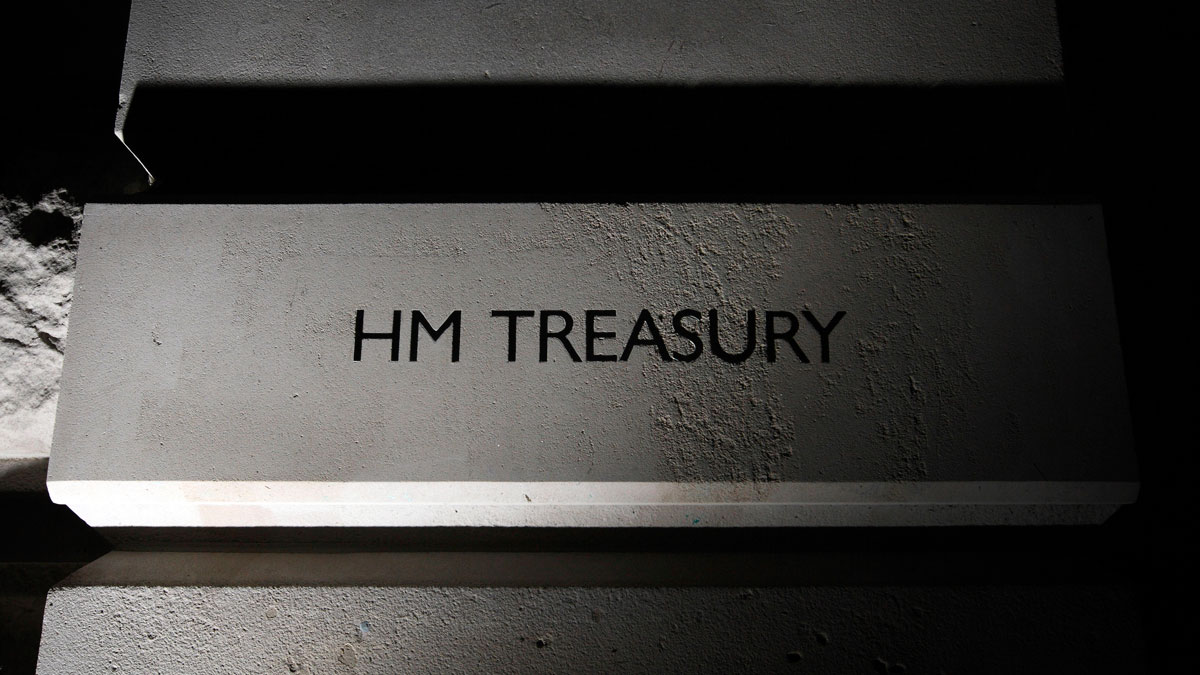Has the Treasury compromised OBR independence?
Chairman says he is 'relaxed' about Treasury officials offering 'unsolicited drafting advice'

A free daily email with the biggest news stories of the day – and the best features from TheWeek.com
You are now subscribed
Your newsletter sign-up was successful
This week the independent chairman of the Government's statistics watchdog, the Office for Budget Responsibility, was reappointed – but not before he had faced tough questions from Treasury officials over apparent interference in the drafting of reports.
On the eve of the confirmation hearing for Robert Chote at the Treasury Select Committee yesterday, The Times published a report based on emails obtained under the Freedom of Information Act, which appeared to show government "meddling" in OBR report writing to make their policies look better. The Times investigation is a blow not just for the OBR, but also chancellor George Osborne, who has won much praise for setting up the body to scrutinise economic forecasts.
What is the OBR?
The Week
Escape your echo chamber. Get the facts behind the news, plus analysis from multiple perspectives.

Sign up for The Week's Free Newsletters
From our morning news briefing to a weekly Good News Newsletter, get the best of The Week delivered directly to your inbox.
From our morning news briefing to a weekly Good News Newsletter, get the best of The Week delivered directly to your inbox.
"The OBR was set up in 2010 to end government interference with economic and fiscal forecasting", the Financial Times says. It represented a move by George Osborne to protect the Government from criticism over its economic models as it embarked on a major austerity drive. It is also politically symbolic and allied to attacks on Labour's economic record.
It "employs just 24 people and has a budget of about £2m", the paper adds, and has been considered a "great success", establishing "a reputation for transparency and for independence from the Treasury, which is now widely acknowledged". Some have even called for it to have a wider role costing manifestos of all major parties before elections.
How important is the alleged interference?
If it represents a significant role in the creation and wording of reports, very. It would undermine the OBR's independence, calling into question the evidence on which government policy is based and opening the Conservatives up to allegations that they have doctored policy and do not have a handle on the numbers, their big trump card.
A free daily email with the biggest news stories of the day – and the best features from TheWeek.com
How extensive was the meddling?
The Times cites one email in which a Treasury official admits it has not "strictly stuck to the 'factual changes only' requests" and instead asks the OBR to consider "phrasing" around no fewer than eleven points. "The OBR appeared to have made at least three" changes, it adds.
During the committee hearing, chairman Andrew Tyrie, said that phrases like "rather convoluted" and "top-sliced" were removed from the OBR's analysis after the emails, the BBC reports. In another example the Treasury requested that the OBR cut the words "considerably further" from a passage on a fall in spending as a share of GDP, which was refused.
How important was this?
Chote denied there had been any significant pressure, saying interference from the Treasury had been "at a working level" from a "junior" official, rather than at a senior level. He added that if "serious pressure" were being applied by the chancellor, private officers and senior officials he would "tell them to buzz off".
The committee obviously believed him?
Yes, they seemed to accept his argument that the OBR would "be in a fairly weak state if we were not able to be robust about this". But Tyrie did demand Chote publish all correspondence between the Treasury and the OBR before its latest set of forecasts and for all future releases, and has called Sir David Ramsden, the Treasury’s chief economic adviser, for a hearing next month.
What have others made of the revelations?
Not an awful lot. As has been said, the OBR is widely respected and there is no real evidence of widespread forecast fixing. In any case, most say this is merely the way things work with the Treasury and that the important thing is that the OBR stands up for itself.
Former business secretary Vince Cable told the Times: "The important point is not that the Treasury tried to interfere but that it was rebuffed. The key is that the OBR is strong enough and independent enough to send them away with a flea in their ear."
-
 Political cartoons for February 16
Political cartoons for February 16Cartoons Monday’s political cartoons include President's Day, a valentine from the Epstein files, and more
-
 Regent Hong Kong: a tranquil haven with a prime waterfront spot
Regent Hong Kong: a tranquil haven with a prime waterfront spotThe Week Recommends The trendy hotel recently underwent an extensive two-year revamp
-
 The problem with diagnosing profound autism
The problem with diagnosing profound autismThe Explainer Experts are reconsidering the idea of autism as a spectrum, which could impact diagnoses and policy making for the condition